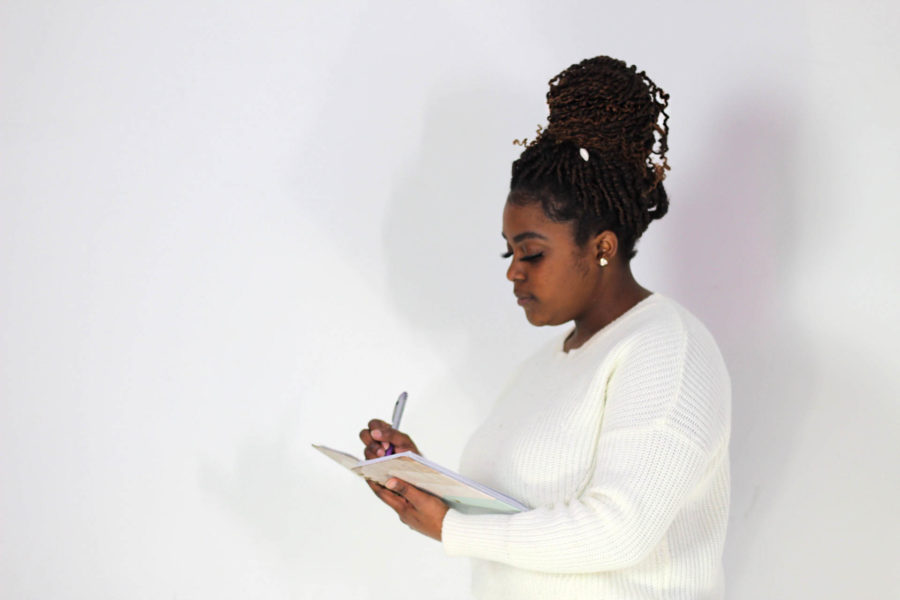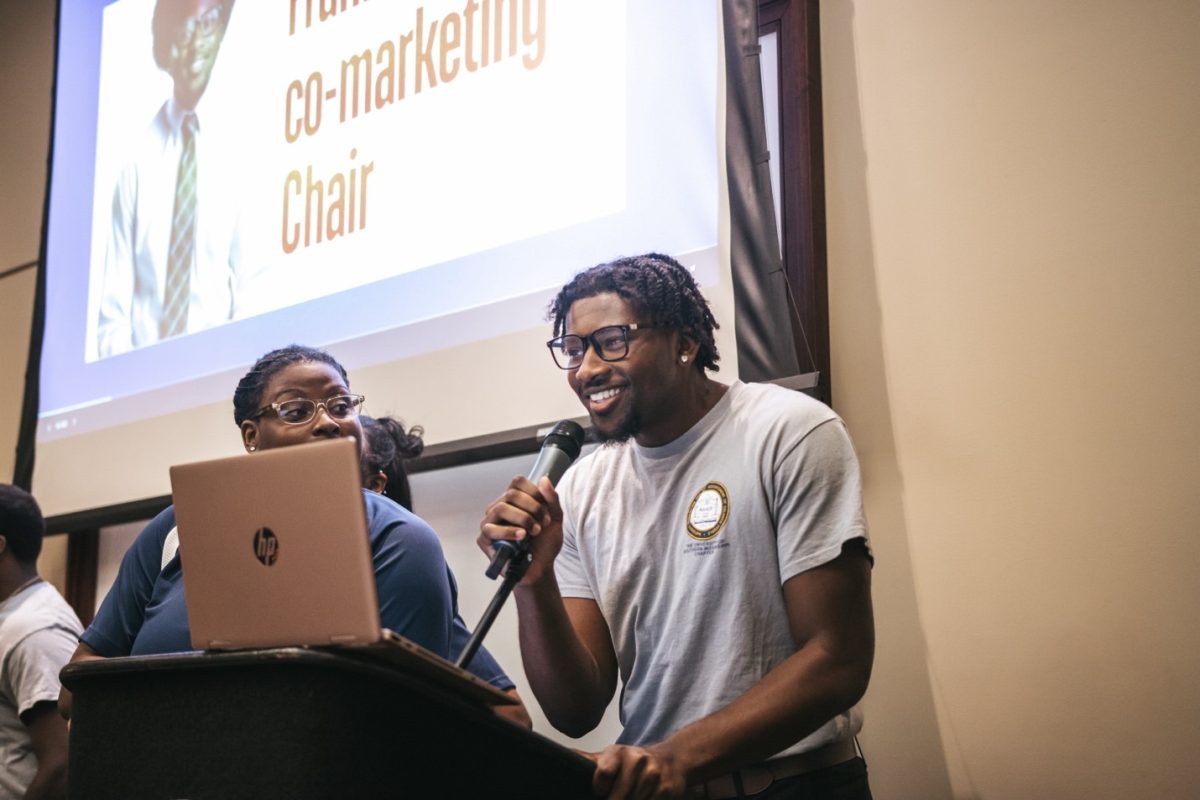Taraja Gibbs is a senior elementary education with an emphasis in English. She is a rising poet with a desire to be a new voice raising awareness of societal issues and mental illness.
Her path to becoming a poet began in high school, when she, like many teenagers, sought refuge in a journal. However, it took encouragement from an English professor during her freshman year of college to convince her to try pursuing writing. Her passion for writing grew when she joined the organization C.H.A.O.S.
C.H.A.O.S. is a hip-hop and artistic collective consisting of poets, singers, rappers, dancers and other expressive art. Members come together to support one another and build their creative skills. Gibbs said the organization helped her grow as a writer.
In her writing, Gibbs expresses anger and difficulty in society for African Americans in her work.
“I like to describe my writing as having a sense of awareness,” Gibbs said. “I like to write pieces about current events that have angered me. For example, I have a piece about Eric Garner and giving him a voice of what it must have felt like in his final moments. I have one about gun violence that tells the story of at least four different individuals that lost their lives.”
She also expresses her experiences in dealing with depression and offers a positive to her audience as they read work. Her poem “Referral for Preservation” is an example of her writing that deals with depression. She wrote the piece after she suffered from PTSD and depression after surviving a car accident.
“I wanted to tell people that yes, I am a performer. And yes, I may be considered a strong woman to you; however, I do go through my own trials and tribulations,” Gibbs said. “When you go back and forth between depression and hope, and they are conflicting with each other, hope always wins in the end.”
Senior criminal justice major, Damika Balam, said she supports Gibbs and her writing. They have been friends since their freshman year of college and said they treat each other like sisters.
“Sometimes her writing can be very deep, but it’s not a bad thing. It gets you thinking. What she says on the surface so much is deeper once you start thinking about it,” Balam said.
Gibbs described her writing process as weird. She does things like play classical music and dance in her room for three hours until she gets one line of a poem.
Gibbs said she does not read poetry and acknowledged that that is rare for a poet. She said ambiguous poetry doesn’t interest her as she would rather not speculate about the meaning of poems.
Her muse is emotion.
“Anger is surface level emotion, but an emotion that is felt the most. I like to say myself that I am an angry poet to be a happier person.”
Gibbs said writing is not only her hobby but also her life.
In the future, Gibbs sees herself in a bigger city and pursuing a writing career. With hopes of having her poetry published, she said she wants her work to inspire others to overcome any obstacles and find community.


























